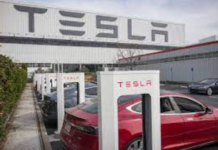Seoul– Hyundai Motor on Monday raised its annual revenue and operating profit margin guidance after reporting a 5 per cent on-year decline in third-quarter net profit on provisions involving engine-related services.
The South Korean carmaker expected its on-year revenue will grow by 19-20 per cent this year, which is higher than the 13-14 per cent growth last year. It reported 117.61 trillion won ($81.67 billion) in revenue in 2021.
Hyundai also projected its operating profit margin to reach 6.5-7.5 percent from 5.5-6.5 percent during the same period, helped by an improved product mix and reduced incentives in major markets, reports Yonhap news agency.
But Hyundai revised down its annual vehicle sales target by 7 percent to 4.01 million units from 4.32 million set early this year due mainly to the prolonged Russia-Ukraine war and chip shortages.
“The company has raised the annual revenue growth outlook due to the friendly exchange rates and rising average selling prices driven by an improved product mix despite the downward revision for the annual vehicle sales target,” Hyundai Senior Vice President Koo Za-yong said in a conference call on the quarterly results.
The dollar rose to an average of 1,338 won in the third quarter from 1,157 won a year earlier, according to the Bank of Korea.
Looking ahead, Hyundai said it is “on track to report a record annual revenue result” on the back of improving chip supplies and high-end Genesis, SUV and electrified models despite the massive provisions in the July-September quarter.
Hyundai put aside provisions worth 1.36 trillion won to resolve additional complaints involving the Theta II gasoline direct injection (GDi) engine and offer other customer services in the third quarter.
It is the second time for the maker of the Sonata sedan and the Palisade SUV to reflect massive provisions in its quarterly bottom line.
Hyundai has also lowered its planned capital expenditure to 8.9 trillion won this year from 9.2 trillion won amid increasing external uncertainties.
Hyundai aims to sell 28 percent of the 1.87 million global electric vehicle target in the world’s most important automobile market in 2030.
In 2023, Hyundai targets a 40 per cent increase in EV sales compared to this year’s goal of 220,000 units, with a focus on the IONIQ 6 and IONIQ 5 models. (IANS)







